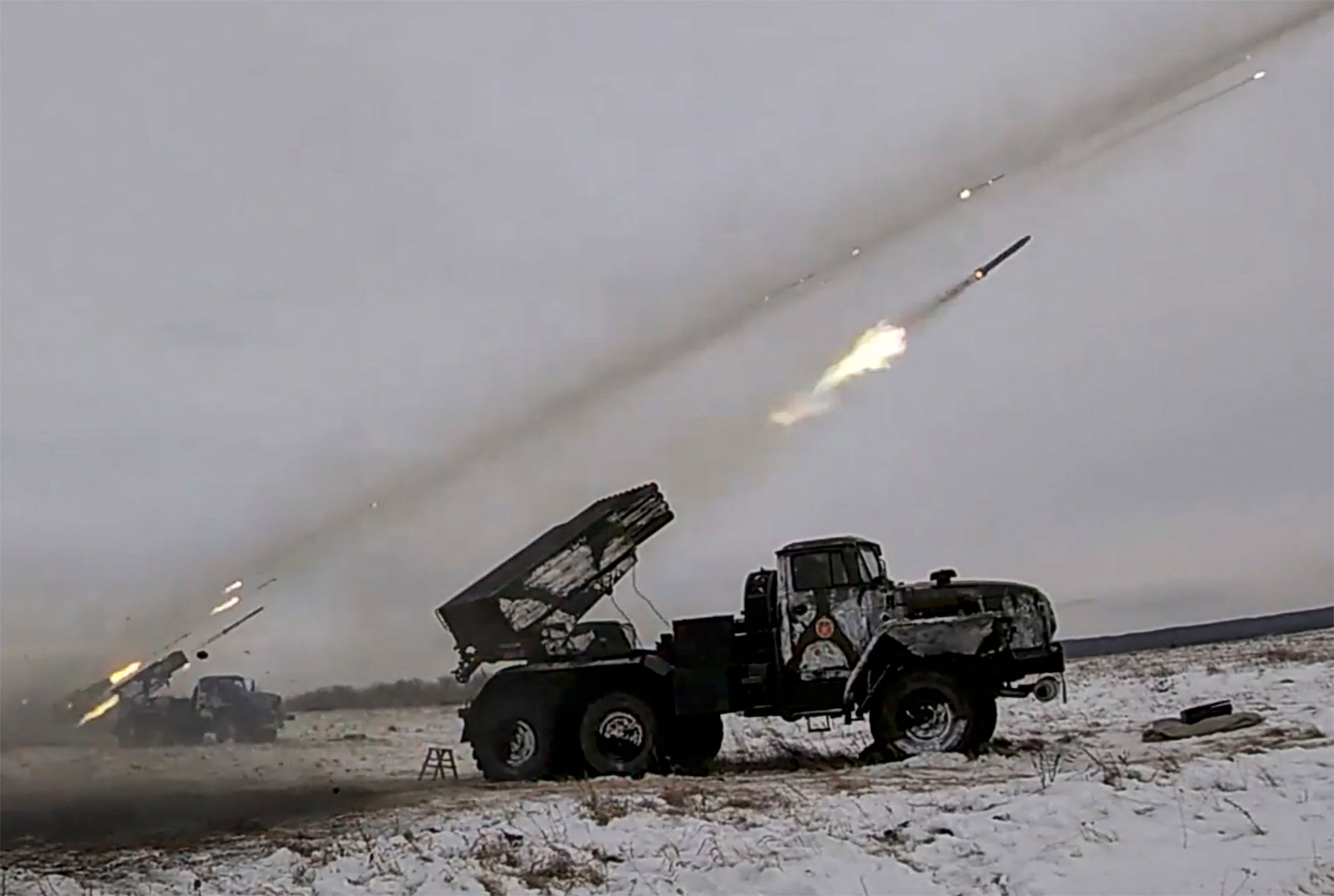Russia issues wish list of security demands for defusing Ukraine crisis
Moscow is demanding an effective on Nato membership for Ukraine among other demands

Your support helps us to tell the story
From reproductive rights to climate change to Big Tech, The Independent is on the ground when the story is developing. Whether it's investigating the financials of Elon Musk's pro-Trump PAC or producing our latest documentary, 'The A Word', which shines a light on the American women fighting for reproductive rights, we know how important it is to parse out the facts from the messaging.
At such a critical moment in US history, we need reporters on the ground. Your donation allows us to keep sending journalists to speak to both sides of the story.
The Independent is trusted by Americans across the entire political spectrum. And unlike many other quality news outlets, we choose not to lock Americans out of our reporting and analysis with paywalls. We believe quality journalism should be available to everyone, paid for by those who can afford it.
Your support makes all the difference.Russia has issued a wish list of security demands it wants to negotiate with the West to defuse a crisis over Ukraine, including a legally binding guarantee that the Nato military alliance would give up any activity in its neighbour and other ex-Soviet countries.
The demands form an ambitious and ultimately unrealistic package that Moscow says is an essential requirement for lowering tensions with Ukraine, which Western countries have accused Russia of sizing up for a potential attack - something it has denied.
The list also contained elements - such as an effective Russian veto on Nato membership for Ukraine - that the West has already ruled out.
Presenting the demands in detail for the first time, Deputy Foreign Minister Sergei Ryabkov told reporters on Friday that Russia and the West must start from a clean sheet in rebuilding relations.
“The line pursued by the United States and Nato over recent years to aggressively escalate the security situation is absolutely unacceptable and extremely dangerous,” he said.
“Washington and its Nato allies should immediately stop regular hostile actions against our country, including unscheduled exercises ... and manoeuvres of military ships and planes, and stop the military development of Ukrainian territory.”
Ryabkov said Russia was not willing to put up with the current situation any more. He urged the United States to take the proposals seriously and come up with a constructive response fast.
Ryabkov said Russia was ready to start talks as soon as Saturday, with Geneva a possible venue, and that its negotiating team was ready.
Nato’s secretary-general Jens Stoltenberg responded on Friday by emphasizing that any security talks with Moscow would need to take into account the alliance’s concerns and involve Ukraine and other partners
White House press secretary Jen Psaki said the United States had seen the proposals and was speaking to allies.
“There will be no talks on European security without our European allies and partners,” Psaki told reporters.
Russian news agency TASS quoted Ryabkov as saying later that Moscow was extremely disappointed by the signals coming from the United States and Nato.
Russia handed over its proposals to the United States earlier this week amid soaring tensions over a build-up of Russian troops near Ukraine.
Moscow says it is responding to what it sees as threats to its own security from Ukraine’s increasingly close relations with Nato and aspirations to join the alliance, even though there is no imminent prospect of Ukraine being allowed to join.
The Russian proposals were set out in two documents - a draft agreement with Nato countries and a draft treaty with the United States, both published by the foreign ministry.
Sam Greene, professor of Russian politics at King’s College London, said on Twitter that President Vladimir Putin was “drawing a line around the post-Soviet space and planting a ‘keep out’ sign”.
“It’s not meant to be a treaty: it’s a declaration,” he said. “But that doesn’t necessarily mean this is a prelude to war. It’s a justification for keeping Moscow’s hair-trigger stance, in order to keep Washington and others off balance. Question is, how long can that be maintained, before it loses its efficacy?”
Reuters and AP



Join our commenting forum
Join thought-provoking conversations, follow other Independent readers and see their replies
Comments